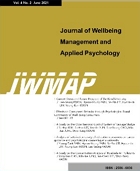 E-ISSN : 2586-6036
E-ISSN : 2586-6036
JEON, Chan-Il
KWON, Lee-Seung
Abstract
Purpose: The purpose of this study is to identify what research ethics issues are related to chemical incidents at the level of national disasters in Korea, and then to secure clear research ethics to prevent similar incidents from recurring. Research design, data and methodology: The study design was a case study of the humidifier disinfectant disaster in Korea. The humidifier disinfectant incident is a worldwide issue that has never occurred in the world. The main cause of the humidifier disinfectant incident that occurred only in Korea was the toxicity of the humidifier disinfectant contained in the humidifier spray. In this regard, research ethics will be derived through related laws and systems, research ethics status, incident damage and compensation, prosecution's investigation status, and the final precedent of the Supreme Court. Results: Although the lack of laws and systems of government departments related to humidifiers is important in the research results, the violation of ethics regulations by researchers during research experiments has become a decisive problem. Conclusions: In conclusion, the most important thing is that the research bioethics of researchers at the forefront should take precedence over any other values, especially during experiments and research related to public health.
- keywords
- Humidifier Disinfectant, Research Ethics, Biocide, Lung Disease, Toxicity
- Downloaded
- Viewed
- 0KCI Citations
- 0WOS Citations













